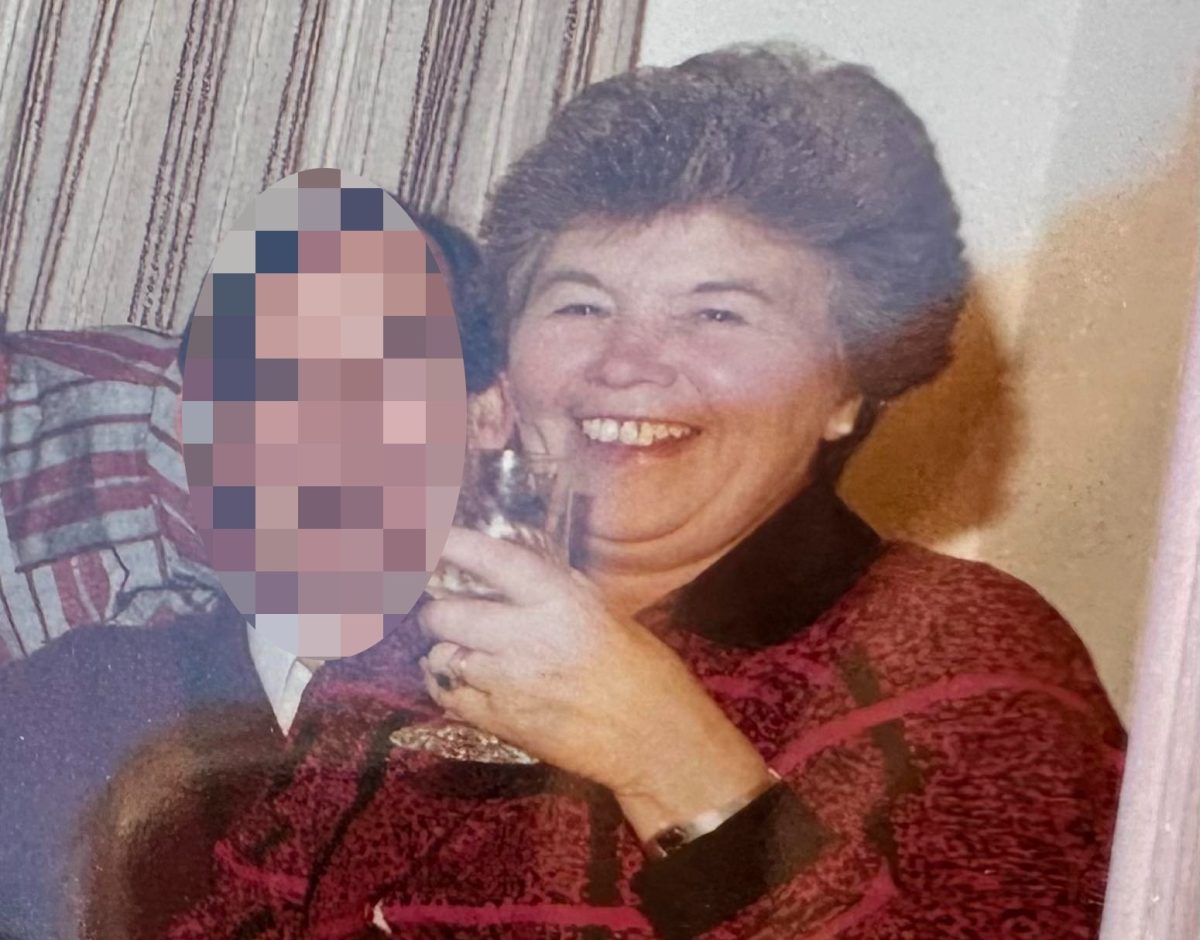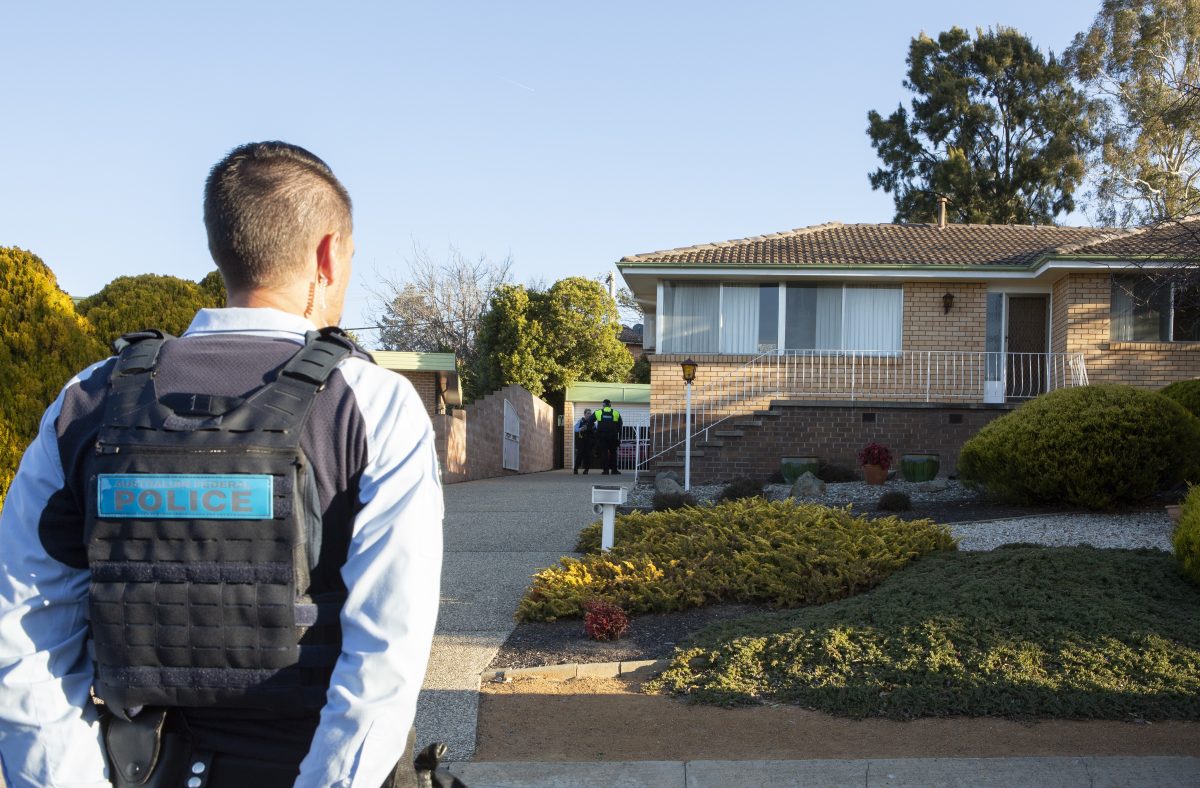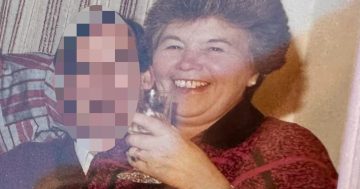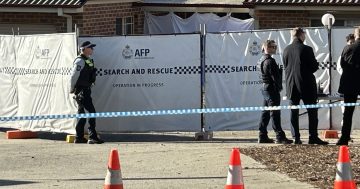
Jean Morley, 92, had been suffering from dementia in the year before her murder. Photo: Supplied.
CONTENT WARNING: This article refers to suicide and family violence.
The elderly murderer who decided to kill his wife of 69 years when he was struggling to deal with both of their health issues likely has less than six months to live.
Donald Morley suffocated his dementia-suffering wife, 92-year-old Jean Morley, as she lay in bed to go to sleep at their home in Fisher on 30 July 2023.
He then tried to end his own life but survived and ultimately went on to plead guilty to murder.
The now-93-year-old was seen with his head wrapped in bandages when he faced the ACT Supreme Court for his sentencing hearing on Wednesday (17 April).
The court heard he had between three and six months to live. Morley has a terminal illness. Skin cancers have penetrated his skull. He has sought palliative care, does not want to be resuscitated and is “suffering greatly from grief”, his barrister, Jon White SC, said.
The couple had been courting for seven years before they married, which meant they had been together for 76 years and had lived in the same home in Canberra since they moved to Australia.
They had no children or close family in the country. Their house has now been sold, and the proceeds will eventually go to Jean’s younger brother, who lives overseas.
On the night of 30 July 2023, Donald had spent two minutes suffocating his wife, prosecutor Skye Jerome said. She said Jean “did not ask to end her life … That decision was made by the offender”.
Ms Jerome said the murder involved “a gross breach of trust” due to the couple’s relationship, as well as Jean’s dependence on her husband.
“This is a serious example of domestic violence where a woman has lost her life at the hands of her partner,” she said.
But she said it did appear Donald had been struggling to care for Jean, as well as his own medical needs.
Mr White described the murder as “a non-voluntary mercy killing” and asked for his client to be handed a suspended sentence due to the “very unique circumstances of this case”.
This would allow him to complete his current psychiatric treatment order, which ends in May, and then get the care he needs in a non-custodial setting.
“He’s really at the end of his life,” the barrister said.
Mr White said the couple had an “incredible bond”, and Donald “loved her so much and cared for her”.

Police were called to the Morley’s Fisher home by the nurse who discovered Jean’s body. Photo: ACT Policing.
While he did attempt suicide after the murder, the court heard he no longer had suicidal ideation.
“He indicated that he tried but he couldn’t do it in the end,” specialist geriatrician Associate Professor Tuly Rosenfeld said.
He said Donald, who has had a stroke, had a vascular disease affecting the brain, which would lead to a loss of cognitive function and essentially result in dementia.
Dr Rosenfeld thought he had been stuck in an “appalling situation” in which he was distressed and couldn’t see a way through. Donald had a choice of attending to his own medical needs and abandoning his wife or caring for her and ignoring his medical situation.
He was frail, had cognitive problems, had no close family to help him, was in pain with a dementia-suffering wife and didn’t know how to access support services, so “it’s remarkable that he survived for as long as he did on his own”, the doctor said.
Earlier in the morning, Ms Jerome tried to adjourn the sentencing hearing as the defence team had only given her office Dr Rosenfeld’s report three business days beforehand and she wanted to be able to obtain her own report.
She argued Dr Rosenfeld didn’t explain the nature and severity of Donald’s mental impairment nor the effect it had on his moral culpability for the murder, but Mr White opposed this application, claiming his client had declined further even within the last week.
Justice David Mossop ultimately said while the defence team had not complied with court orders to provide their expert report in time, it was not appropriate to adjourn due to their client’s limited life expectancy.
He will hand down his sentence on 29 April.
“Can’t believe this, honestly,” Donald said, interrupting Justice Mossop when he was making his final remarks for the day. It was unclear what he was referring to.
It is believed Donald is the oldest person to be charged with murder in the ACT.
If you or someone you know needs help, you can contact:
Lifeline’s 24-hour crisis support line – 13 11 14
Suicide Call Back Service – 1300 659 467
Kids Helpline – 1800 551 800 or kidshelpline.com.au
MensLine Australia – 1300 789 978 or mensline.org.au.
















David Jackson Yet another attempt to be insulting, with no facts whatsoever, despite your attempts… View